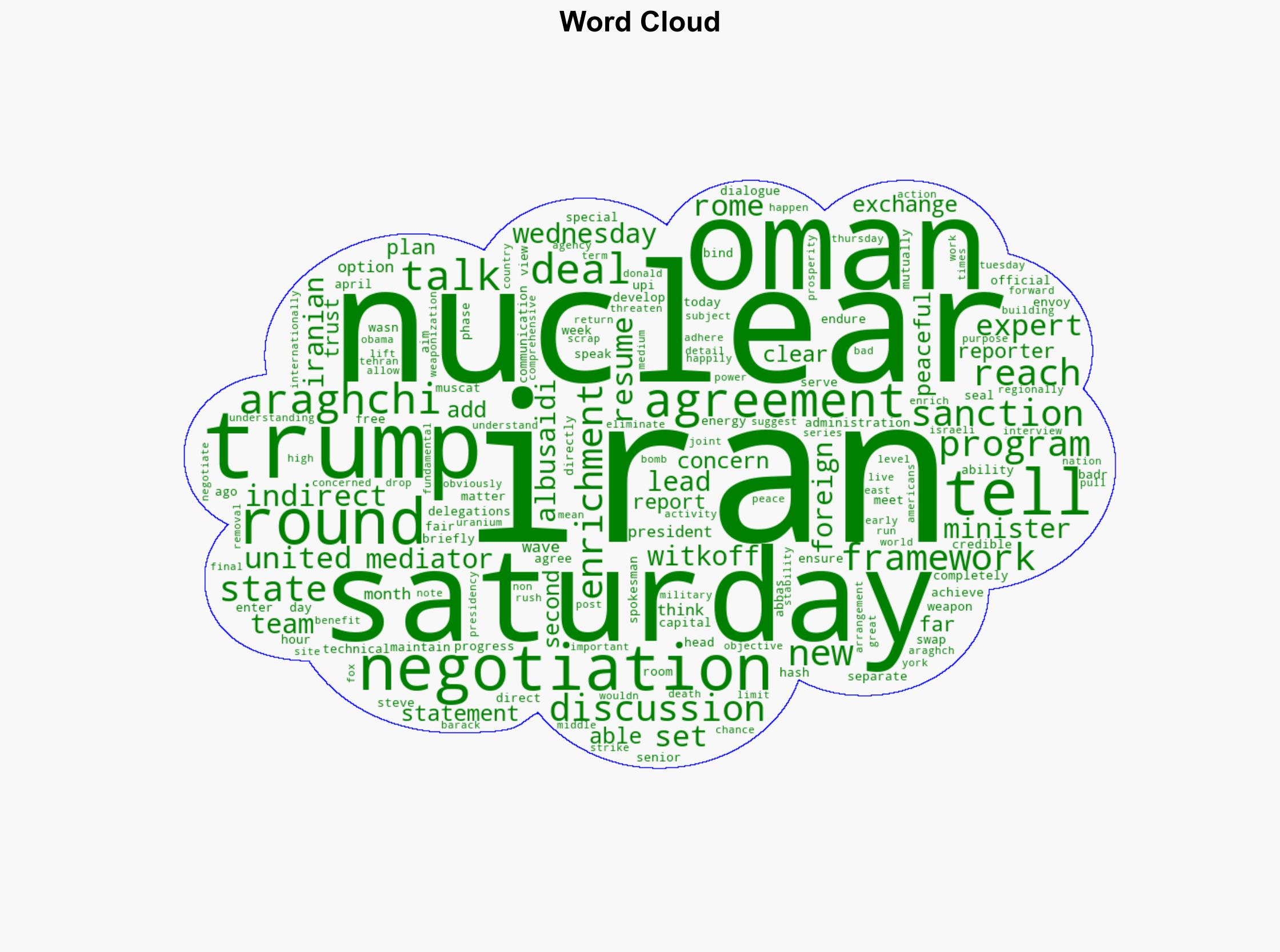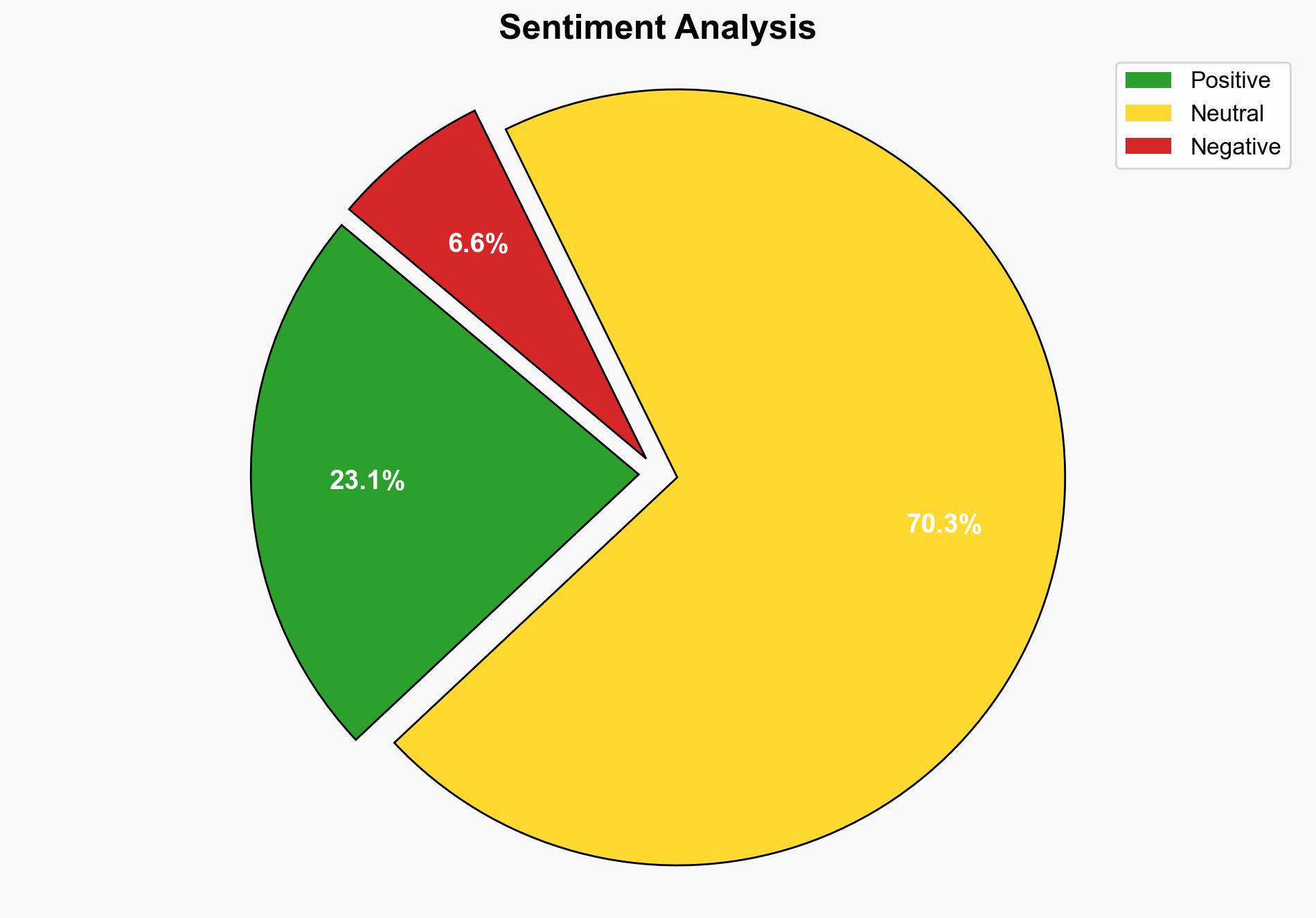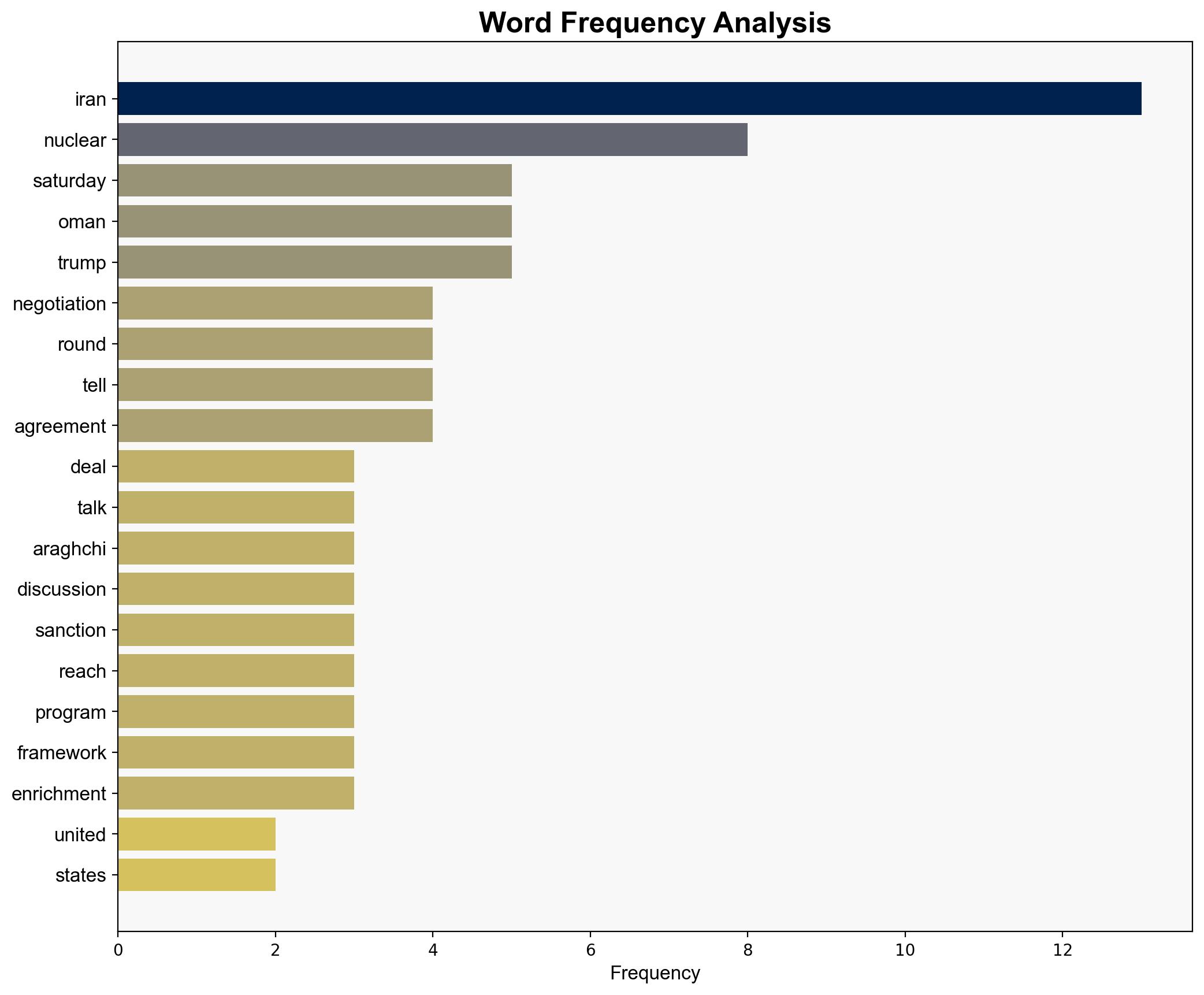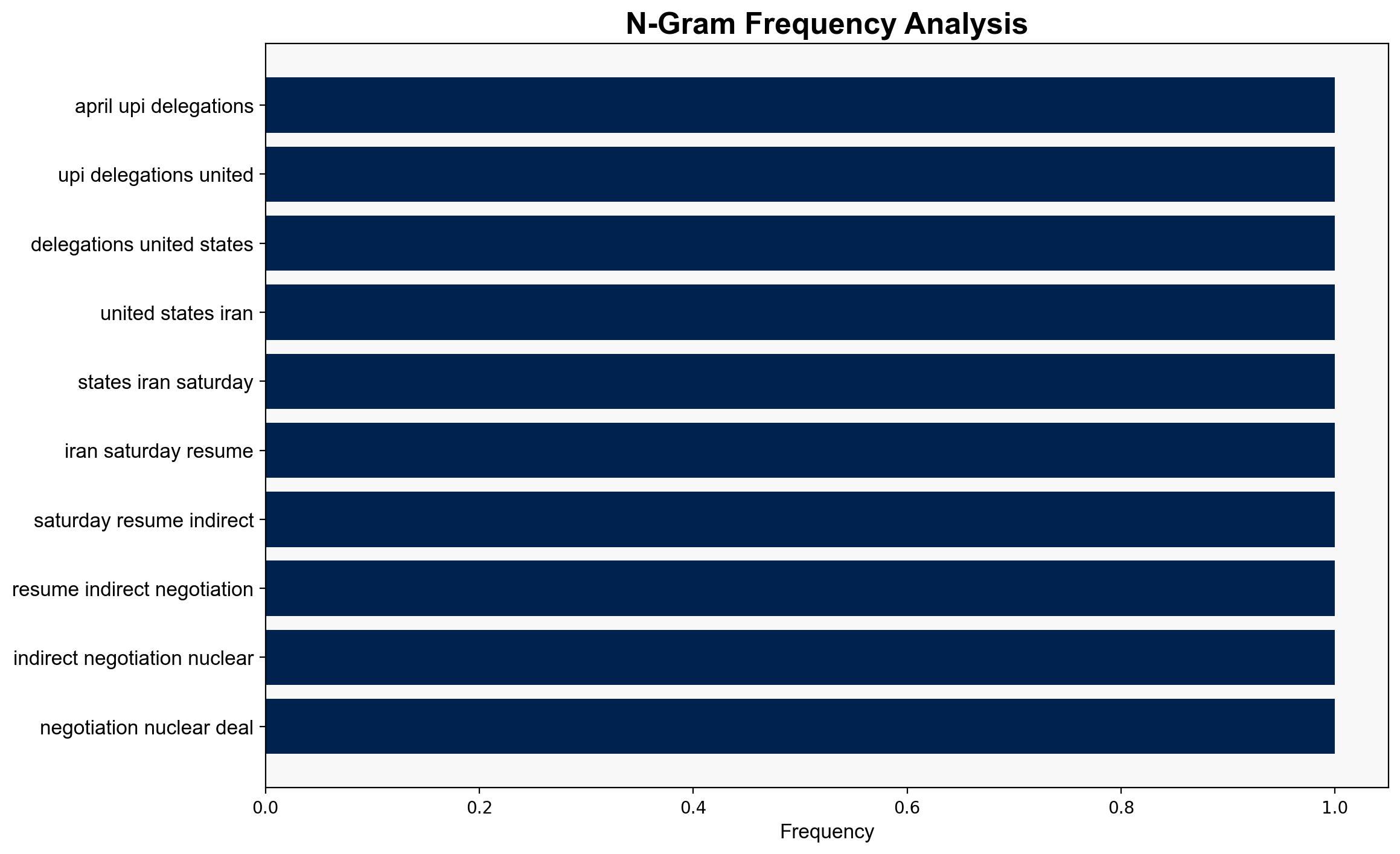US Iran resume nuclear deal talks in Rome – UPI.com
Published on: 2025-04-19
Intelligence Report: US Iran Resume Nuclear Deal Talks in Rome – UPI.com
1. BLUF (Bottom Line Up Front)
The United States and Iran have resumed indirect negotiations in Rome to discuss the nuclear deal, with Oman acting as a mediator. The talks aim to achieve a binding agreement ensuring Iran’s nuclear program remains peaceful while lifting certain sanctions. The negotiations are critical for regional stability and international security.
2. Detailed Analysis
The following structured analytic techniques have been applied:
SWOT Analysis
Strengths: Renewed dialogue between the US and Iran could lead to a peaceful resolution and prevent nuclear proliferation in the region.
Weaknesses: Historical mistrust and previous failures of similar agreements may hinder progress.
Opportunities: Successful negotiations could enhance regional stability and economic opportunities through lifted sanctions.
Threats: Potential for military escalation if talks fail, with implications for regional and global security.
Cross-Impact Matrix
The outcome of these talks could significantly influence neighboring regions. A successful deal may reduce tensions in the Middle East, whereas failure could exacerbate conflicts involving regional powers.
Scenario Generation
Best Case: An agreement is reached, leading to reduced regional tensions and economic benefits for Iran and its neighbors.
Worst Case: Talks collapse, leading to increased sanctions and potential military confrontations.
Most Likely: Prolonged negotiations with incremental progress, maintaining a fragile status quo.
3. Implications and Strategic Risks
The continuation of talks indicates a willingness to resolve issues diplomatically, but the risk of failure remains high. Key vulnerabilities include potential hardline stances from both sides and external pressures from other regional actors. Economic impacts are significant, with sanctions affecting global markets and regional economies.
4. Recommendations and Outlook
- Encourage continued diplomatic engagement and confidence-building measures to foster trust between parties.
- Monitor regional actors’ responses to negotiations to anticipate shifts in alliances and power dynamics.
- Prepare contingency plans for potential escalation scenarios, including economic and military responses.
- Scenario-based projections suggest a cautious optimism for a gradual easing of tensions if talks progress positively.
5. Key Individuals and Entities
Steve Witkoff, Abbas Araghchi, Badr Albusaidi.




